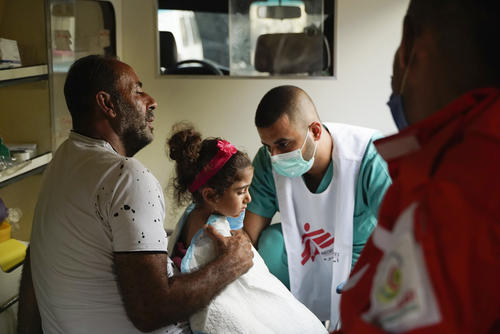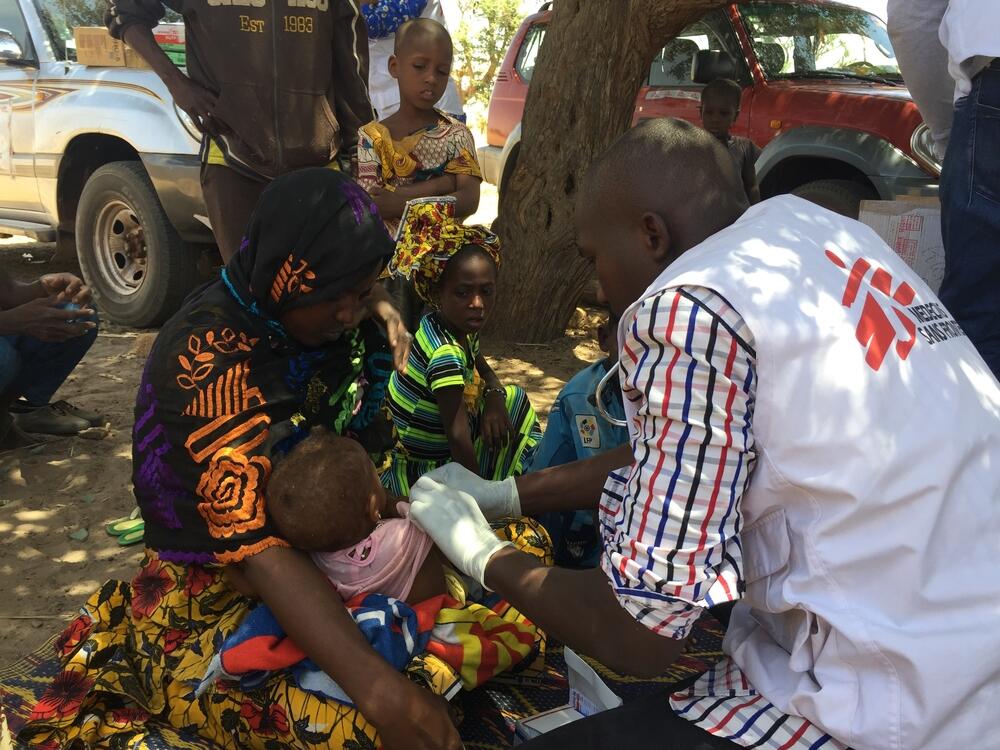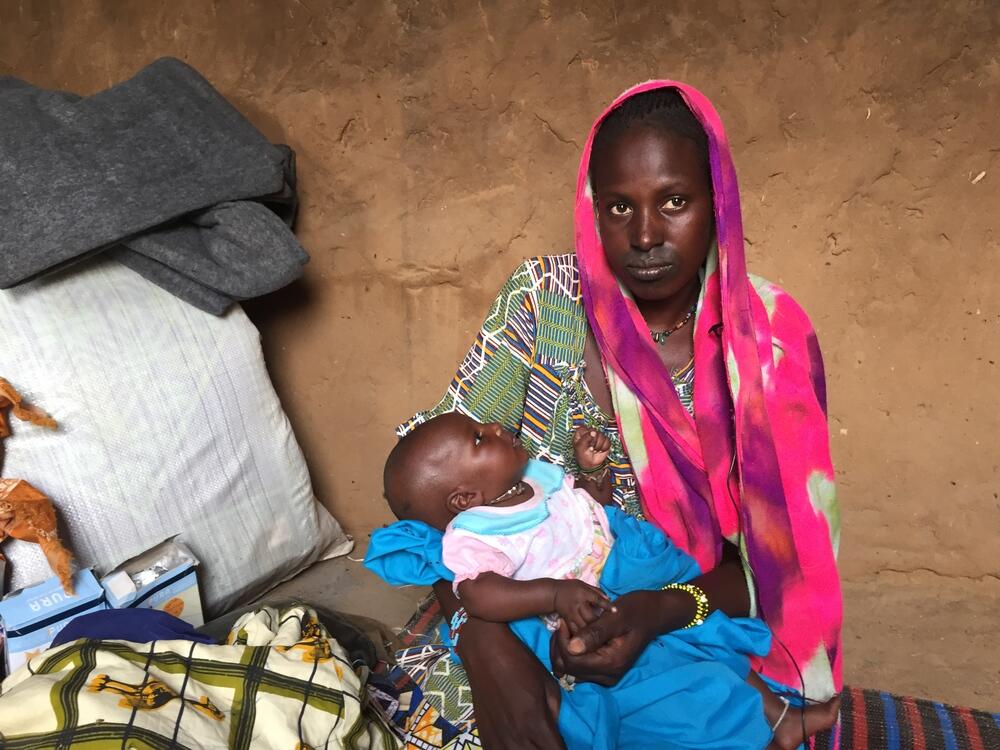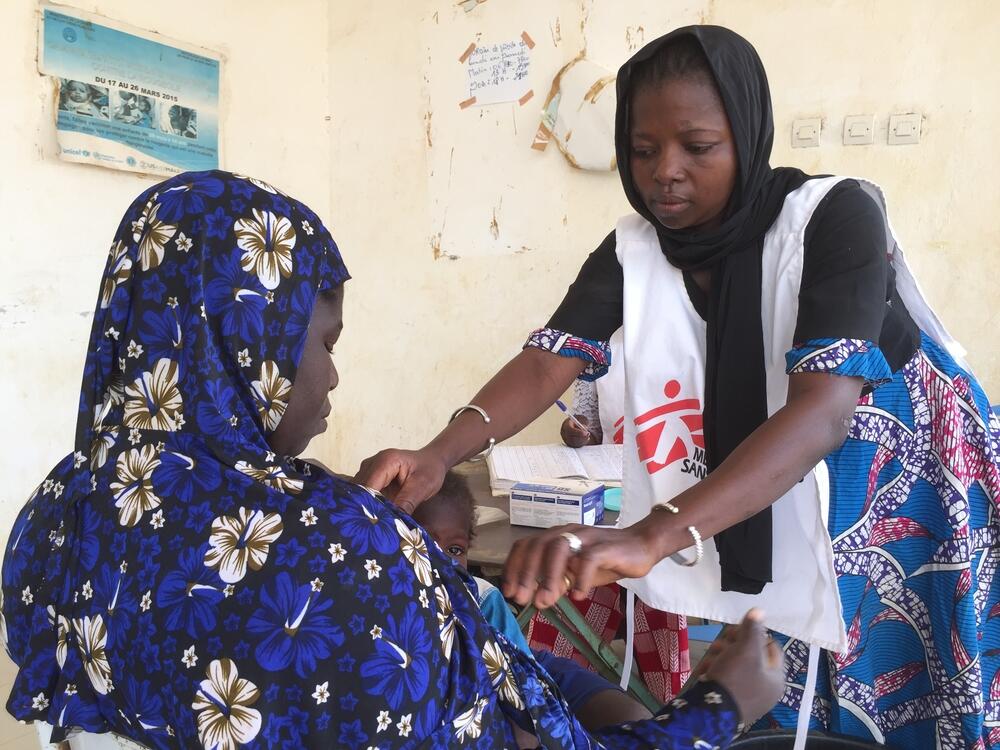Mali: Insecurity has created an unprecedented humanitarian crisis
Mali has been facing a political and security crisis since 2012. But violence has recently intensified in the country’s central region, seriously affecting local communities.
Patrick Irenge, who has been a medical coordinator with Médecins Sans Frontières / Doctors Without Borders (MSF) in the capital Bamako since September 2017, describes how this insecurity has created an unprecedented humanitarian crisis in the West African country, as well as how MSF is responding to assist the most vulnerable people.
The situation on the ground
"In Mali, a climate of violence has been established in the daily lives of people in the centre and north of the country.
In the centre, security incidents and conflicts between different communities have been on the rise for over a year.
Two massacres, the first in the village of Ogossagou in March 2019 and more recently the village of Sobane in June 2019, have killed 160 and 35 people respectively, including 24 children, are the tragic proof of this.
The heavy toll of these attacks has generated international media coverage and prompted widespread indignation. But unfortunately, whilst the astonishing violence of these deadly events is unusual, they are just the latest two examples among a multitude of others.

Get closer to the Frontline
Get the latest news, stories and updates, straight to your inbox.
"The most alarming thing is that these incidents are increasingly affecting the civilian population, creating a climate of insecurity, fear and mistrust with even more disastrous consequences."
Currently, the region of Mopti suffers security incidents on an almost daily basis. The most alarming thing is that these incidents are increasingly affecting the civilian population, creating a climate of insecurity, fear and mistrust with even more disastrous consequences.
The impact of violence
First, we must remember that in central and northern Mali, a large majority of the rural population lives very modestly, surviving on agriculture and livestock. They already face hardship associated with the rainy season and lean months.
Now, added to these seasonal difficulties is the population's lack of mobility, with some communities now completely unable travel.
This is caused by people's fear of taking a road that has been mined, the presence of armed groups in the region or the fear of crossing the hamlet of another ethnic group.
As a result, entire villages are literally hemmed in. Their inhabitants can no longer carry out their usual tasks such as working, and no longer have access to primary healthcare.
Our teams in the town of Douentza, in daily contact with the community, bear witnesses to this immense struggle to access care.
Another problem is the increasing number of displaced people who have fled violence. These families have often left everything behind and live in makeshift shelters or host communities, left to cope on their own with no hope of returning to their homes.
Generally speaking, the needs of affected and displaced people are many: food, healthcare, basic items, shelter, protection and access to water. And, unfortunately, humanitarian aid
Alarming signs
There are several alarming signs for the healthcare situation.
An obvious indicator is the late arrival of a large number of patients to healthcare facilities. Far too many are waiting to be seriously ill before deciding to seek medical assistance.
We are also seeing an increase in the number of people suffering from malnutrition that are directly linked to the decline in economic activities which allow families to meet their basic needs.
Many pregnant women can no longer attend health centres for antenatal care and are often forced to give birth at home, increasing the risk of complications and deaths.
is insufficient as providing regular aid is very difficult or almost impossible in the most remote areas.
"We call them "one-shot" clinics: as soon as a safety window, such as a temporary lull in violence a specific area opens up, we deploy a team that can provide the maximum level of care on the spot."
Children also suffer serious consequences as they no longer have access to routine vaccinations or other preventive treatments such as malaria tablets. As such, they are dangerously exposed to several life-threatening diseases.
In some remote villages our teams have treated children who had never been vaccinated, which would suggest that some people have not had access to medical care for years.
There is also a sharp increase in psychological disorders among people who have suffered and fled violence or who fear impromptu attacks.
“One-shot” clinics
Alongside the medical facilities we already support, MSF has intensified its emergency response activities since May 2018.
We monitor how people's needs are evolving across the country every day thanks to our teams in the field. We also launch exploratory missions on the spot to quickly identify large movements of people and respond to other serious situations.
Our teams do this through mobile clinics that provide medical care and psychological support. Where it’s needed, we also distribute essential items.
These targeted responses enable us to come to the aid of the most vulnerable and to temporarily protect their health despite insecurity. We call them "one-shot" clinics: as soon as a safety window, such as a temporary lull in violence a specific area opens up, we deploy a team that can provide the maximum level of care on the spot, including crucial preventive treatments and vaccinations. Sometimes there are more than 180 consultations in one day.
Community healthcare
Our identity – as a neutral, impartial and independent organisation – creates acceptance and allows us to reach particularly difficult areas. But since insecurity is unstable and highly unpredictable, MSF has been pushed to adapt to the conflict situation in central and northern Mali.
One strategy has been to involve the community more by training local community health workers to treat certain disease and provide medications.
Simple conditions, such as malaria or diarrhoea, patients are now cared for within their communities rather than in a health centre. While community health workers are also trained to monitor pregnancies and to detect signs of malnutrition and other serious illnesses in order to refer patients earlier.
An uncertain future
At the moment we are worried that the insecurity will continue to intensify, inevitably depriving more and more people of access to healthcare and essential items.
Mali already faces a number of seasonal challenges. For example, the rainy season that has just begun will bring its fair share of problems such as malaria, flooding and deteriorating road conditions that will impact the accessibility of communities.
There is also a risk of a lack of food because insecurity has significantly restricted farming activities.
The difficulties that the Malian population will face in the coming months are more serious than in previous years.
Our teams are ready to respond to this thanks to the stock of materials and medicines we have prepared across the country, and a team that is really specialised in these types of emergencies."
MSF in Mali
Médecins Sans Frontières/Doctors Without Borders (MSF) is working around the country to improve access to healthcare in both rural communities and urban areas, treating conditions such as malaria, malnutrition and providing psychological care for victims of violence.
In 2012, the military seized power and the north fell under al-Qaeda control, which led to hundreds of thousands of northern Malians fleeing their homes and food shortages in the south.


